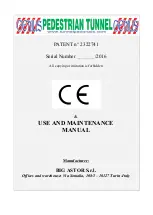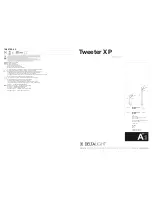
Equinox Geometrix Laser
Safety
What is a laser?
A laser is device that produces a special kind of light that is different from normal light sources.
Laser light sources differ from normal light sources in that they can produce very intense beams
of light that can remain parallel over long distances. It is this high concentration of light that can
sometimes make lasers harmful to look directly into.
What is a Class 3B Laser?
Any device that contains a laser has to be classified depending upon the amount of laser light that
someone might be exposed to. During design and manufacture of the product, the manufacturer
assigns the laser product to one of the various classes defined in the Laser Product Safety
Standard (BS/EN 60825-1:2007). The classes range from the safest, which is Class 1, through
to the most hazardous, which is Class 4.
For example, CD and DVD players contain lasers to read the disk, and because they are normally
inaccessible to people, they are classified as a Class 1 laser products. Laser Pointers output more
accessible power than CD/DVD players and are normally limited to being Class 2 devices. While
most laser lighting effects products are Class 3B and Class 4 laser products. These two classes
have the highest potential to cause harm because they emit the greatest light output. This is, of
course, desirable and necessary for laser lighting effects!
A laser product that emits more than 5mW of light and less than 500mW is normally classified as a
Class 3B laser product, meaning it carries a risk of harming eyesight if viewed directly.
Are Class 3B Laser Lighting Effects safe to view?
Yes, if used responsibly, and in accordance with the relevant the guidance issued by the Health
and Safety Executive.
In the simplest terms, generally keeping the beams and effects above the audience will not
present a hazard to those viewing the show or effects. When you start to aim the laser effects
down into the audience area is when it becomes harder to tell if the effects could cause harm.
With a Class 3B laser lighting effect, the problem can arise if the beams or effects actually hit
someone’s face.
If in doubt, keep the effects above the audience.






























